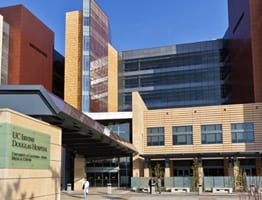
Health Maintenance for Adults
Many healthy adults aren’t really sure what they need to do to safeguard their health. The tradition of getting an annual physical exam was debunked decades ago; there is simply no evidence that getting a routine physical does anything to improve a healthy individual’s health. However, there are a few things that adults need to monitor in order to ensure they remain in tip-top health.
Blood Pressure
Elevated blood pressure is very common in adults, even relatively young adults. It is also asymptomatic and can slowly and progressively damage your organs. Starting in their early 20s adults need to regularly check their blood pressure every few months. Most pharmacies offer self-check machines. If you get several elevated readings in a row, it is time to consult your physician. Lifestyle changes are often sufficient to correct hypertension, but in some cases, medication is also needed.
Blood Lipid Levels
The age to begin screening for abnormal blood lipid levels and the necessary interval for screening is unclear. The U.S. Preventative Services Task Force (USPSTF) says there is no clear evidence to fully support screening people for abnormal blood lipid levels under the age of 40, while the CDC currently recommends that adults should get a baseline reading around age 21 and then get their blood lipid levels checked every four to six years. If you are at an elevated risk due to a family history, you may wish to get screened more often; the best interval for you to be screened for abnormal blood lipid levels should be discussed with your doctor.
Watch Your Weight
Although it is normal to gain a small amount of weight as you get older, keeping an eye on your weight and making minor lifestyle changes in order to keep weight gain under control is a far more effective method of weight management than letting yourself gain 30 pounds and then struggling to get it off. Weighing yourself daily at the same time every day is a very good health habit to develop. If you find your weight is creeping up, your doctor can advise you on lifestyle changes to assist you in keeping it under control.
Cancer Screenings
Everyone should consider participating in a colorectal screening program starting at age 50; there are several options for screening that you should discuss with your doctor. Men should discuss with their doctors whether they should participate in a prostate cancer screening program and if so, at what age to start. Women should get screened for cervical cancer every three to five years and consider participating in a breast cancer screening program. The USPSTF currently recommends starting breast cancer screening at age 50 and getting a screening every two years.









